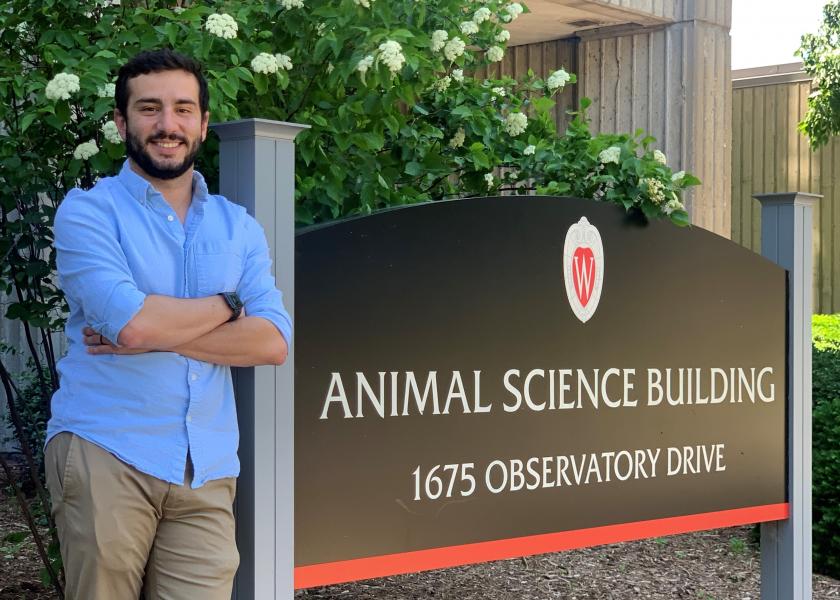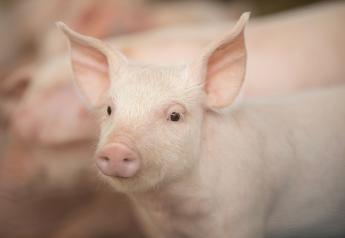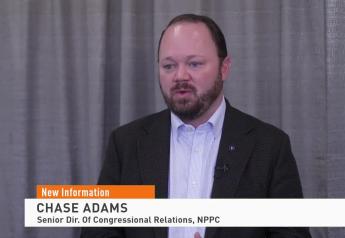Chinchilla-Vargas Seeks to Accelerate Genetic Improvement in Swine

Meet Josue Chinchilla-Vargas, our latest addition to Farm Journal's PORK's Up & Coming Leaders feature. We are showcasing some of the fresh, new voices of the pork industry who combine innovative thought and work ethic with scientific savvy and a passion to make a difference.
Age: 30
Hometown: San Jose, Costa Rica
Education: Bachelor’s degree, Zamorano University in Honduras; master’s degree, Iowa State University; recently completed PhD at Iowa State University
Q: How did you become interested in pursuing a career in the swine industry?
A: I have always been interested in working in the field of food security; however, I became interested in swine when I was exposed to the importance and the potential of swine both from an economic and a food security point of view by Dr. Ken Stalder and Dr. Max Rothschild at Iowa State University. Working with them made me realize swine are a great vehicle to improve and guarantee food security for families in rural areas both in the U.S. and in the developing world since they are efficient, adaptable and prolific.
Q: Describe any internship experiences you’ve had.
A: When I was a senior at Zamorano University, I did an internship at Louisiana State University studying the genetic improvement of wheat and oats. This experience was particularly impactful and made me realize I loved research and mentoring. It also made me realize I did not enjoy working with plants and animals were the way to go.
Q: Describe any undergraduate research experiences you’ve had.
A: I was involved in multiple research projects at Zamorano. My favorite was developing and designing a reproduction program for fish, specifically Pacu (Colossoma macropomum). However, my graduation research project was related to improving reproductive management of dairy cattle in tropical weather conditions. Regarding swine, I was involved in several research projects related to improving nutritional strategies for swine in tropical weather conditions.
Q: Describe any other swine-related experiences you’ve had as a young person.
A: I must admit I was not involved in agriculture before college — my earliest memory of swine is going to a farm when I was around 8 years old and realizing sows are huge. It was my first time seeing an adult pig. I must thank Dr. Stalder and Dr. Rothschild for exposing me to the reality of swine operations and helping me develop an interest in the swine industry. I was a teaching assistant for Dr. Stalder’s advanced swine production course, which helped familiarize with the swine industry in the U.S. I also worked with Dr. Rothschild to develop Extension handouts for swine producers in Africa. Additionally, I worked with Dr. Rothschild to develop machine learning models to help us identify pure Mangalitsa pigs to be included in the breed’s herd book. This experience helped me realize the value of small producers for niche markets and heirloom breeds.
Q: Describe what type of research you are working on and how it could impact the swine industry?
A: After finishing my PhD, I decided to pursue more training in the quantitative side of breeding and genetics. I will be working with dairy cattle as a postdoctoral researcher at the University of Wisconsin- Madison under Dr. Francisco Peñagaricano. The dairy industry has traditionally been at the forefront of the application of technology and methodology for genetic improvement, and I think it is a great opportunity to learn and then translate the methodologies and apply them to the swine industry. My current project is focused on using sensor data to improve selection for estrus expression. Although this is not directly related to swine, being trained in this area will give me valuable tools to develop and improve the usage of sensors and other automated data recording systems on sow farms and finishers to hopefully accelerate genetic improvement and help pork producers simplify management.
Q: What do you think will be the greatest challenge for your generation going into the swine industry today?
A: I think the public is very disconnected from agriculture and therefore has unrealistic expectations for animal production. Our biggest challenge will be to keep improving the efficiency and sustainability of the livestock industry while trying to satisfy the demands of the consumers without sacrificing performance and profitability.
Read more from Farm Journal's PORK:
Research Explores Nutritional Strategies to Boost Profitability
Research Could Help Identify Infertility in Breeding Hogs Earlier
Technology Can Improve Farrowing Rates, Offset Labor Shortage







